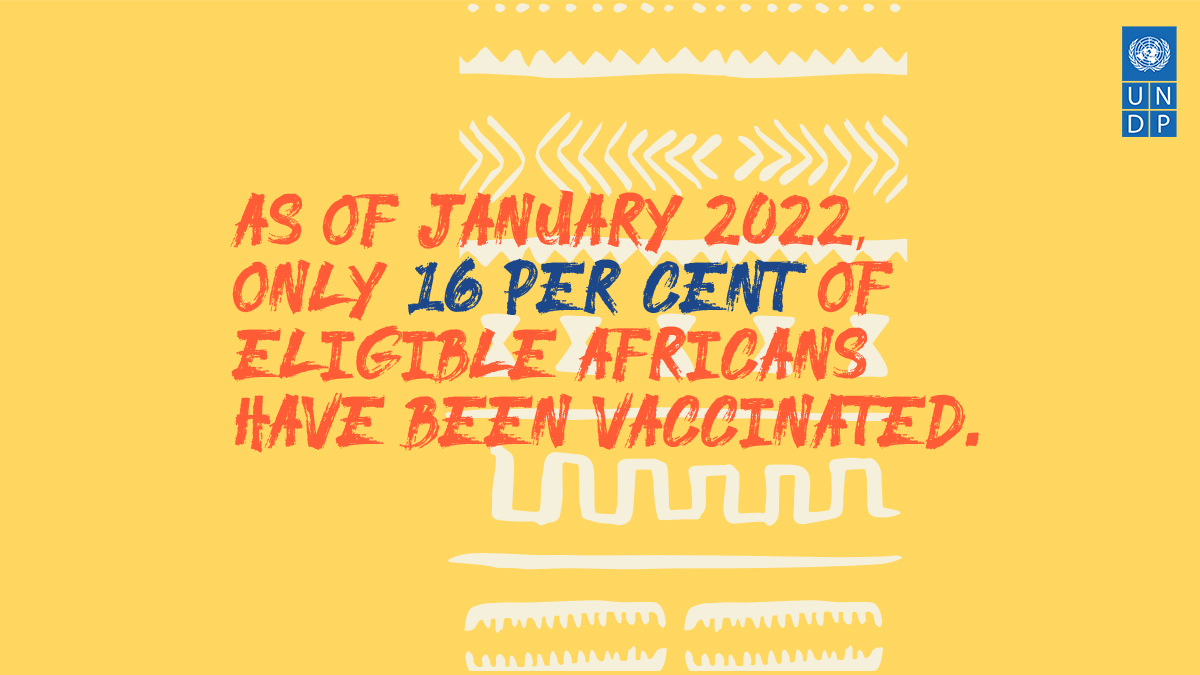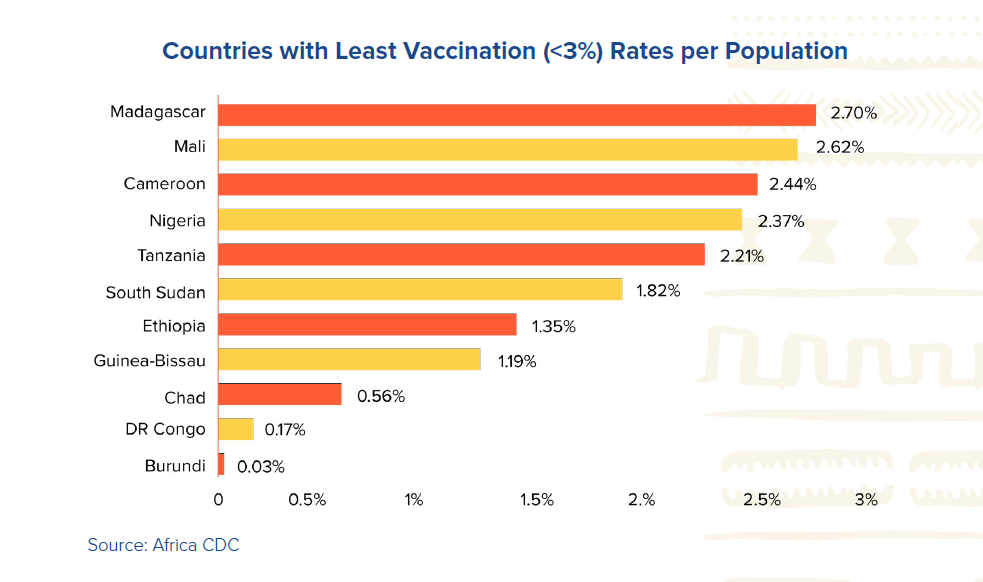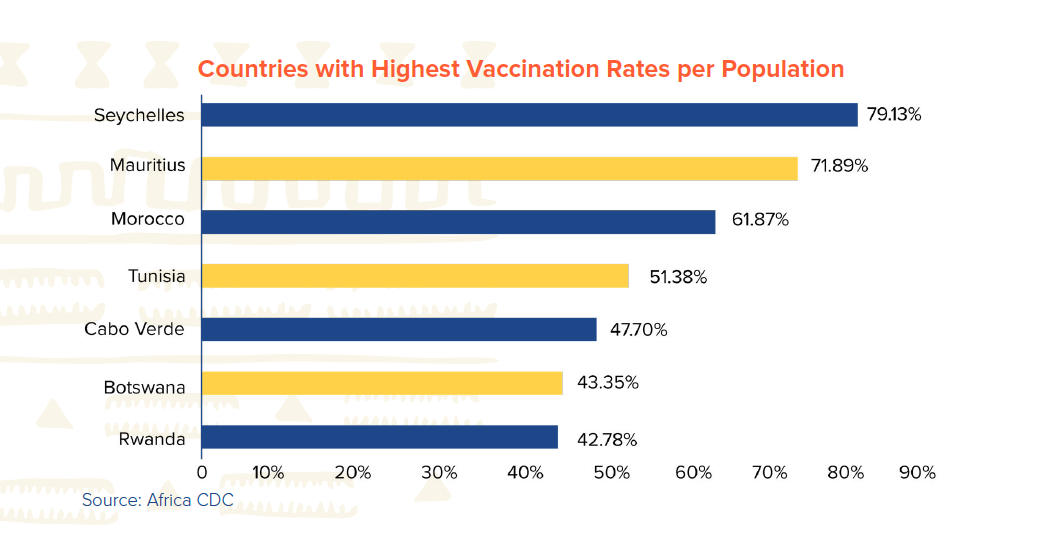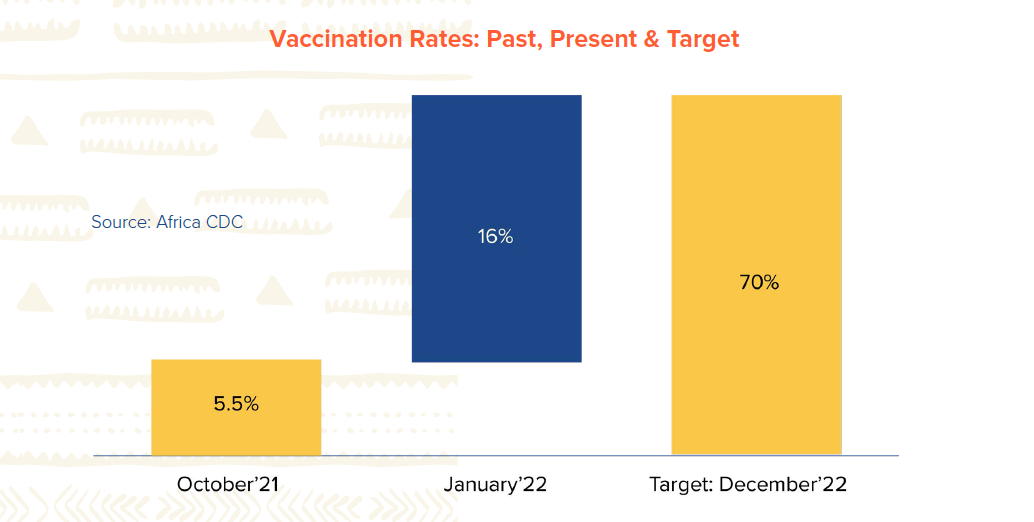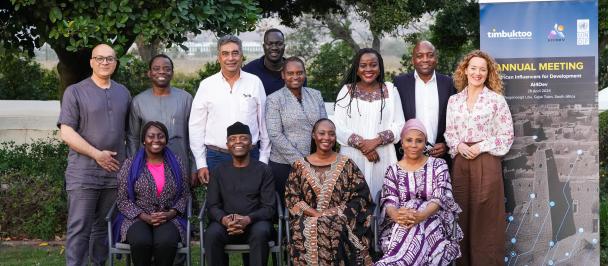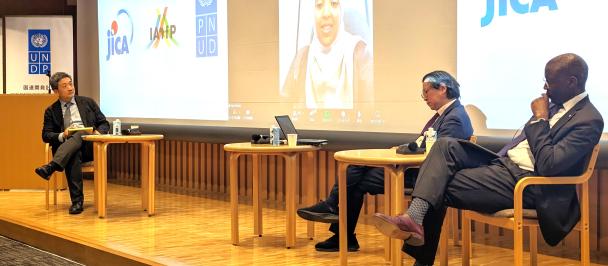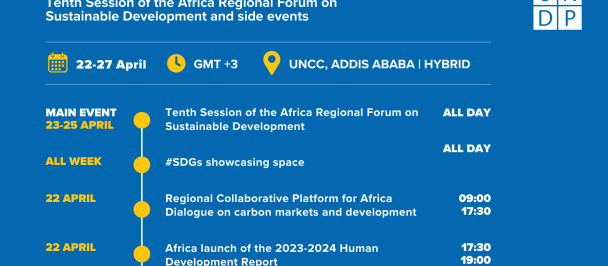Image: UNDP/Aisha Jemila Daniels
Vaccination is a priority for Africa
The World Health Organization (WHO) set a goal of 10 per cent vaccination by Sep 2021 and 40 per cent by Dec 2021. However, to date Africa has the least vaccinated people (10.11 per cent fully vaccinated and 5.32 per cent partially vaccinated).
Countries such as Eritrea, Kenya, Mali, Burkina Faso, Tunisia, Mauritius, South Africa and Egypt are currently battling the fourth wave, with the aftereffects of the pandemic as devastating as one would expect. It is predicted that with new variants mutating with time, the death toll from future waves in Africa will likely be high.
The most populated countries in Africa, notably Nigeria and Ethiopia, have vaccinated less than 3 per cent of their population. Least developed countries such as Burundi and Chad continue to rank very low in the rate of vaccination – less than 1 per cent so far. Small Island Developing States (SIDs), notably Seychelles and Mauritius, have the highest vaccination rates in Africa though they constitute less than 0.2 per cent of Africa’s population
Vaccines delayed is development denied
The African Union (AU) has set an ambitious target of reaching 70 per cent vaccination rates by the end of 2022. However, several impediments are responsible for low vaccination rates, including availability, hesitancy, production constraints and affordability. In April 2021, the AU proposed an ambitious plan to manufacture 60 per cent of Africa’s vaccines on the continent by 2040. A recent summit on vaccine production organized by the Africa CDC, the AU Development Agency (AUDA-NEPAD), and the African Continental Free Trade Area (AfCFTA) called for the rapid operationalization of the African Medicines Agency (AMA) to harmonize vaccine manufacturing regulation on the continent.
Though global pledges for vaccine coverage and equality have failed to meet increasing demand, these efforts in addition to new vaccine facilities under production in at least six African countries – including Rwanda, Senegal and South Africa in Sub-Saharan Africa – will likely help boost vaccination rates in Africa (IMF). UNDP will continue to prioritize support to the Africa CDC and African countries on vaccine production.

 Locations
Locations